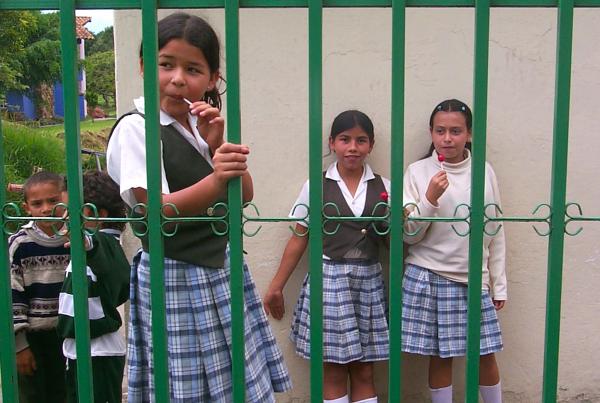One of the quickest ways of being outed as a foreigner is through social etiquette, or more specifically, a failure to follow it.
I try to observe and follow along when possible, such as the synchronized clapping that happens at the end of a major performance, a remnant of the Soviet influence in Tajikistan.
Sometimes, it’s even pleasantly in my favour. On public transportation, I quickly saw that female passengers are always given priority for seats. When an elderly woman steps on the bus, the speed at which men bolt out of their seats to give her their place is almost comical.
Trial by fire
Other times, it’s someone’s reaction that tips me off. February 23 of every year is Military Day, honouring Tajik men who are in the armed forces. Since military service is an obligatory civic duty for all males, the holiday has since broadened to sometimes be called Men’s Day. I was told that it’s common practice to give pairs of socks to men on that day, though I have yet to determine if the explanation was real or not.
My colleagues very graciously accepted the inappropriately intimate present.
Evidently, it’s such a stereotype in Tajikistan that men’s socks regularly have holes and are old and smelly that they’re always in need of new ones. Eager to participate, I gifted some male colleagues pairs of socks with fun patterns on them. Their stunned silence, followed by an eruption of loud, delighted guffaws, made me freeze in confusion and flooded me with doubt that someone was pulling a prank on me. In fact, my male colleagues clarified, socks are commonly given—but only to close family members or spouses.
Seeing my good intentions, though, my colleagues very graciously accepted the inappropriately intimate present.
In a medical context
The reactions to these cultural faux pas aren’t always as positive. When I went to the public hospital to have a quick check-up, I was excited to hear that public health services in the country are free (though the quality is incomparable to private facilities). As I stood up to leave the office after a fairly straight-forward visit, the doctor was giving me a peculiar look I couldn’t identify. I slowly gathered my things, double-checking that I hadn’t knocked over something or taken her pen by accident.
“Everything okay?” she asked, raising an eyebrow as I reached for the doorknob.
I nodded back, thanking her again with a cautious smile and ducking out, catching a glimpse of her suddenly very cold expression. When I retold this story to a friend shortly afterwards, a slow knowing smile crept on her face when I reached the end of the visit.
"Ah, Annie. . . Doctors in a public hospital don’t get paid very much, so you’re supposed to tip them."
Drawing the comparison to a waiter in a restaurant in the U.S. on minimum wage, she elaborated more on the treatment of public servants compared to the private sector as I tried to wrap my mind around this unheard of new norm.
A hands-off greeting
As a touch-sensitive person (even since before the pandemic made everyone hyper-aware of their physical proximity to others) I’ve always shied away from unnecessary hugs or handshakes when greeting people. The most painful to endure, without a doubt, is the multi-cheek kissing popular in Francophone countries.
Therefore, I greatly appreciate the literal hands-off approach to Tajik greetings. While close male friends or colleagues may shake hands, others just briefly place their right hand over their heart. It’s often paired with a short “Assalom” and a polite nod. This is particularly true for interactions between men and women, regardless of age, and I have wholeheartedly embraced this practice.
A few weeks ago, though, an acquaintance unknowingly strayed from this etiquette. He was visiting the traditional market in town, Mehrgon Bazaar, located in a large open space with long tables piled high with fresh produce and spices. The vendors tend to hover just in front of their displayed goods, luring in potential customers—typically locals—and enjoying unobstructed views of anyone walking down their row. When this acquaintance strolled in, he immediately drew every single person’s undivided attention.
To be fair, he is a 6'2", very muscular black man dressed in a revealing tight white tank top in an environment where any one of those characteristics would be eye-catching. However, to top it all off, as he went down the row of sellers, his response to the attention was to shake everyone’s hands, not dissimilar from a politician greeting his constituents at a rally. Most notably, this included female vendors, most of whom hesitated before cautiously extending their hand back.
On his way out of the main hall, he felt a tap on his elbow and looked down. One of the older women had followed him and even though he couldn’t understand a word of what she saw saying, her stern tone of voice and pointed gestures clearly indicated that he did something he shouldn’t have. He held up in his hands, hoping it would be a universal gesture of apology and smiled, trying to appease her irritation as he walked away, then immediately dialled my number to share his latest lesson in cultural adjustment.
Add this article to your reading list




